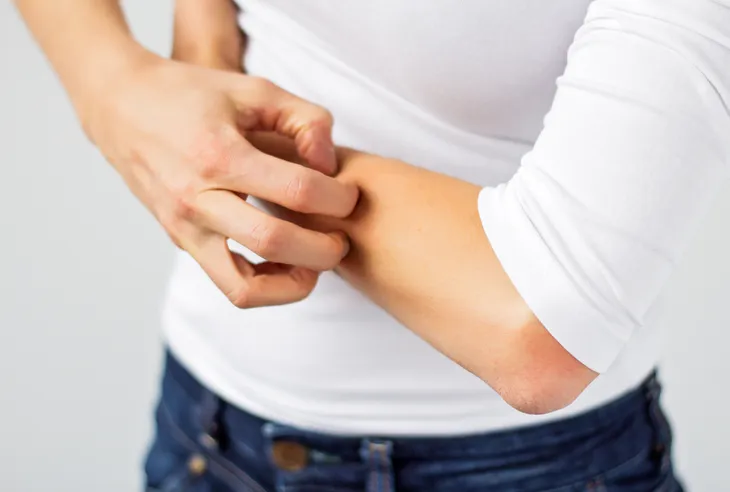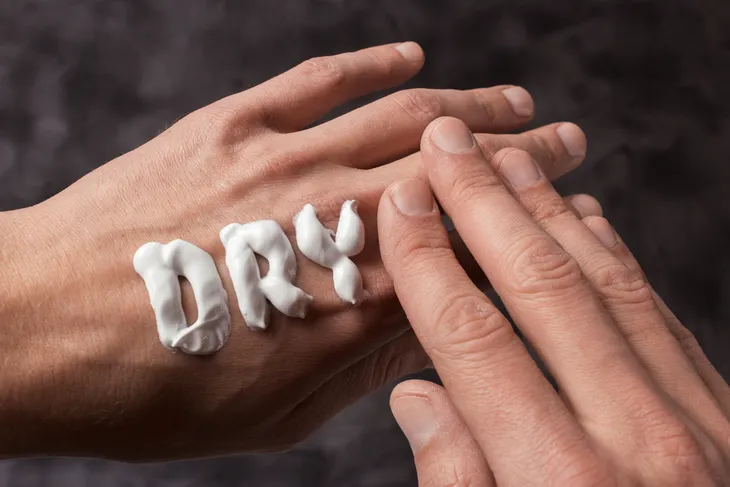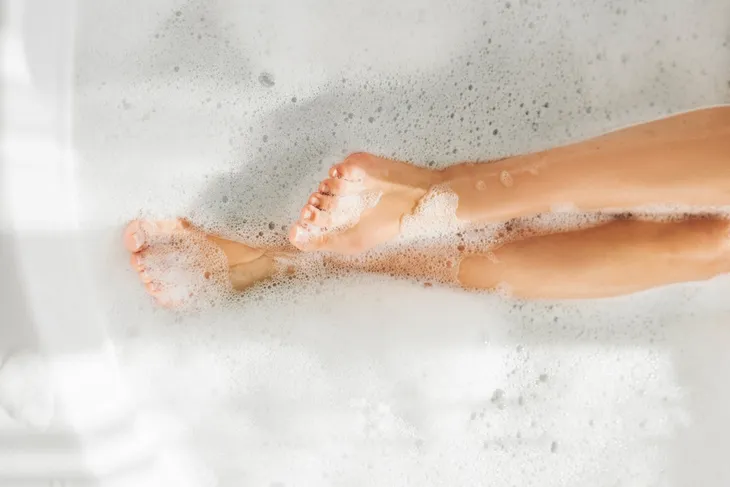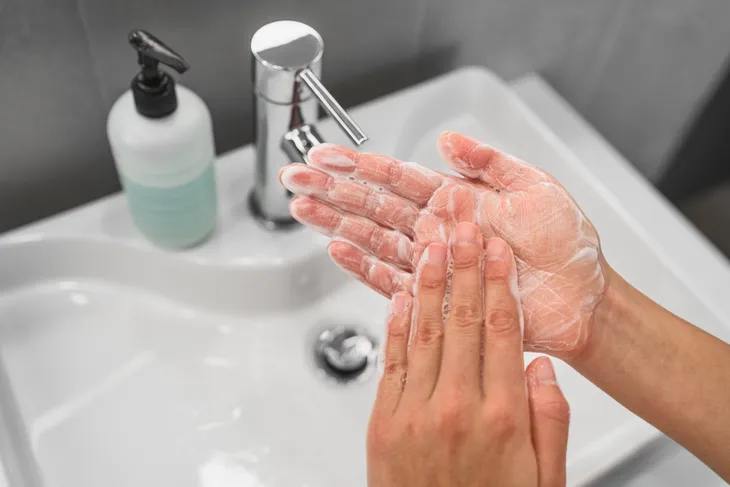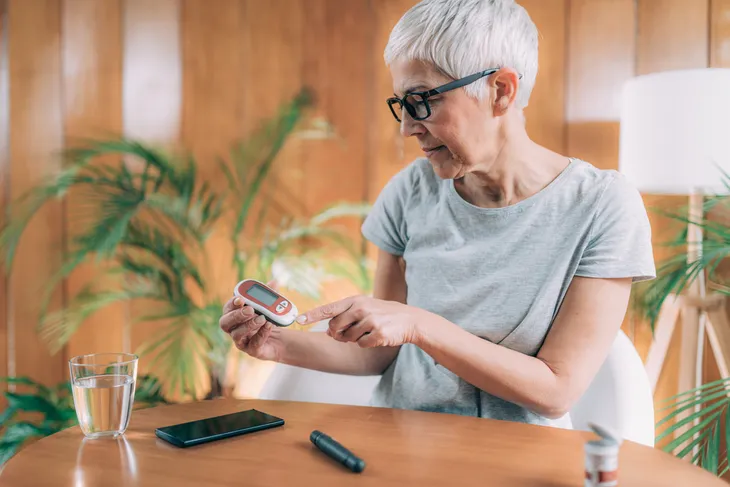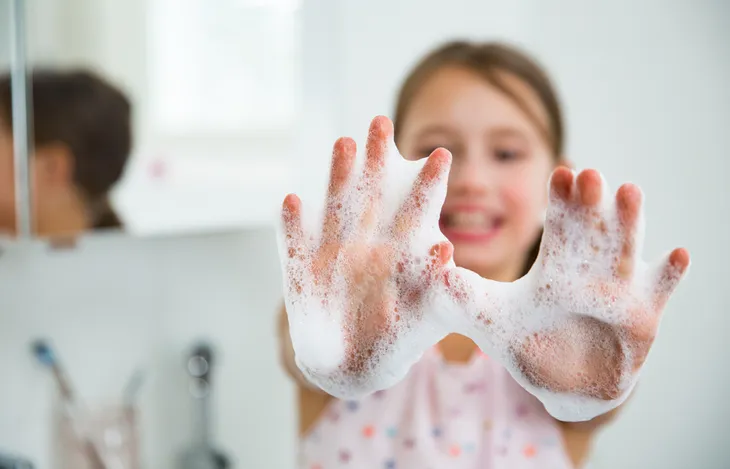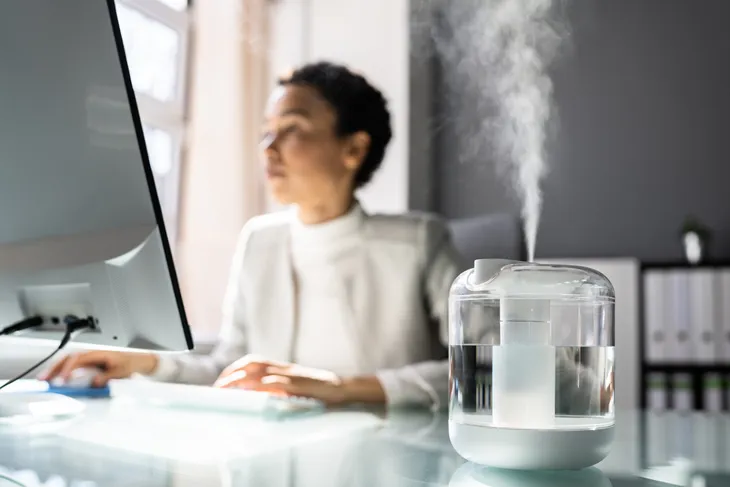- Dry skin affects people of all ages and it’s more common than you may think.
- There are many culprits of dry skin ranging from dry air to drying soaps and even certain health conditions.
- Luckily, many cases of dry skin can be treated at home.
No one likes dry skin. It feels rough and it can be itchy and sometimes even painful! But the fact is, dry skin is more common than you may think and it affects people of all ages.
The good news is there are simple and effective remedies you can try to help relieve dry skin. But it’s important to have an understanding of what causes it to occur in the first place. Follow along as we take a look at the common symptoms of dry skin plus the common culprits. We’ll also find out how you can treat it and the steps you can take to prevent it from occurring in the future.
Common Signs and Symptoms of Dry Skin
According to the Mayo Clinic, your symptoms can vary depending on your age, health, skin tone, living environment, and sun exposure. However, the telltale sign of dry skin is patches that look and feel rough. It may also feel tight or itchy. Other possible symptoms include:
- Flaking skin
- Scaling or peeling
- Cracked skin (sometimes so severe it may bleed)
- Red patches on white skin or grayish patches on brown or black skin
What Causes Dry Skin?
Dry skin is often temporary for most people. It can also be seasonal, meaning it occurs during certain times of the year, such as winter.
Everyday Health says the cause of dry skin is a lack of moisture. The source explains that the top layer of your skin is “made up of dead cells and natural oils, which help trap moisture to keep the skin soft and smooth.” However, if the protective oil is gone, there won’t be enough water in the top layer to keep your skin soft and moisturized, causing dry skin to develop.
But where that lack of moisture comes from can vary from person to person. Moisture can be sucked out of your skin from dry air, soap, and hot showers. Let’s take a closer look into these common causes next!
Dry Air Can Cause Dry Skin
Have you ever noticed an increase in dry skin during the winter? There’s a reason for that! The air is dryer during the cooler months because cold air contracts and condenses making it hard to retain moisture. As a result, the cold air sucks the moisture out of your skin, causing dry skin to develop.
Your lips are especially susceptible to dry air. WebMD explains the combination of the dry, cold air and the cold wind can cause your lips to feel dry and chapped.
Fragrances and Soaps May Cause Dry Skin
While fragrances smell nice, they may be making your dry skin worse. Amy Forman Taub, MD, a clinical assistant professor of dermatology at Northwestern Medicine in Lincolnshire, Illinois tells Everyday Health that this is because fragrances often irritate dry skin and are a common cause of allergic contact dermatitis. So be mindful of skin care products, perfumes, and deodorants, especially during the cooler months.
Your soap could be the culprit too! Soap has the important job of destroying germs and bacteria but it also removes oil from the skin. While this can be a good thing, especially for someone with oily hair, some soaps can be extra drying causing dry skin and a dry scalp. During the winter, opt for a moisturizing body wash instead of bars of soap. Be mindful of your laundry detergent too and opt for gentle detergents instead that will be kinder to your skin.
Frequent Hand Washing Can Cause Dry Skin
Washing your hands is important for getting rid of germs. It’s also important to help prevent the spread of viruses. But frequent hand washing can also be the culprit of dry skin. Individuals in the healthcare industry are especially susceptible to dry skin from handwashing.
Everyday Health says you can prevent drying skin by using lukewarm water and avoiding using alcohol-based soaps. It’s also important to avoid rubbing your hands with a paper towel as this can make your skin even dryer. Instead, blot your hands dry. Applying a thick moisturizer after washing your hands may also be necessary.
Hot Showers and Hard Water May Cause Dry Skin
There’s nothing better than taking a hot shower or bath on a cold, wintery day. That said, the hot water may be doing more harm than good. The Baylor College of Medicine explains that a hot shower not only dries out the skin but it can also damage the surface of your skin too. The source says it’s best to stick to lukewarm showers of about 98.6-degrees Fahrenheit.
The temperature of the water isn’t the only thing that can cause dry skin. Hard water can cause skin dryness too. Hard water contains a high concentration of minerals that can leave a film on your skin, which can soak up the natural moisture and oils from your skin. As a result, this can cause your skin to become dry. If you have skin conditions like eczema or psoriasis, hard water can aggravate these conditions even more. The best way to combat dry skin caused by hard water is to install a water-softening system in your home.
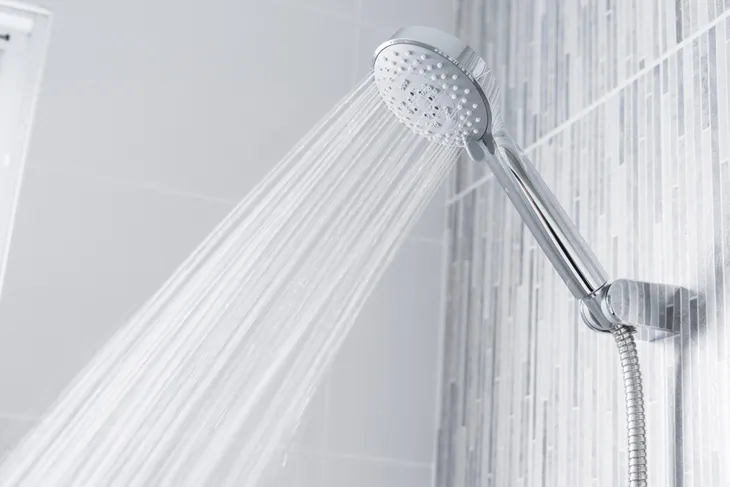 Shutterstock/ben bryant
Shutterstock/ben bryantHealth Conditions Can Cause Dry Skin
Certain skin conditions can make you prone to dry skin. According to the American Academy of Dermatology Association (AAD) skin conditions such as atopic dermatitis, ichthyosis, psoriasis, perioral dermatitis, and seborrheic dermatitis are known to cause excessively dry skin.
The source also notes that diabetes, thyroid disease, or kidney disease can also cause dry skin. As can dialysis because it removes water from your body. Certain cancer treatments may also lead to dry skin. If home remedies fail to ease your dry skin then the culprit may be something more serious that requires medical attention. Always talk to your doctor if you suspect another health condition may be contributing to your dry skin.
Who’s at Risk for Dry Skin?
Anyone can develop dry skin but certain factors may increase your risk. For starters, the Mayo Clinic says age is a risk factor. Individuals over 40 have a higher risk of dry skin because as you age, the skin loses its ability to hold onto the moisture.
People who live in cold and low-humidity climates are also at an increased risk for dry skin. As are individuals with occupations that require you to submerse your hands in water, such as healthcare or hairstyling, and even garden work. The source says swimmers who frequent chlorinated pools also have an increased risk.
How to Treat Dry Skin
The good news is that dry skin can often be treated at home with simple and effective remedies, such as moisturizing your skin, staying hydrated, and adding moisture to the air. However severe cases may require medical attention.
According to the Mayo Clinic, if your skin becomes inflamed or painful, you should contact your doctor. You should also see a doctor if dry skin persists even after trying home remedies, or if you have large areas of scaly or peeling skin. If the condition is interfering with your daily life you should also see a doctor. In the meantime, let’s take a look at some effective home remedies you can try to help treat dry skin.
Moisturize
One simple yet very effective way to treat dry skin is to moisturize. Applying moisturizer throughout the day and especially after showering and washing your hands can help treat and prevent dry skin. However, the AAD suggests avoiding lotions as they may irritate the skin. Instead, opt for ointments and creams that contain soothing ingredients such as:
- Jojoba oil
- Glycerin
- Dimethicone
- Lactic acid
- Hyaluronic acid
- Lanolin
- Mineral oil
- Shea butter
- Petrolatum
If you get dry, chapped lips, wear lip balm. The source says if the product stings or tingles this is a sign that the product is doing more harm than good. Look for a product that is soothing and feels good on the lips.
Use Gentle, Fragrance-Free Soaps
As we mentioned, soap can cause dry skin so one way to treat it is to change your products. The Mayo Clinic suggests opting for an allergen-free moisturizing soap. When washing your hands use a fragrance-free moisturizing soap and then apply a moisturizing cream while your hands are still damp. This will help trap moisture and in turn, treat dry skin.
Pay attention to your body wash and shampoo too as these can be drying for your skin and scalp. Look for moisturizing products that are gentler on the skin. The source also suggests avoiding loofahs and pumice stones and patting your skin dry instead of rubbing it dry with a soft towel.
Be Mindful of the Clothing You Wear
What you wear during the cooler, dry months can make a difference too. If you’re prone to dry skin then the Mayo Clinic suggests wearing fabrics that are kind to your skin. This includes natural fibers that allow your skin to breathe, such as cotton. Stay away from fabrics like wool which can irritate the skin.
When venturing outdoors, protect your hands by wearing gloves, especially in the winter. If you plan on gardening it’s also a good idea to wear gloves to prevent the soil from drying out your hands.
Use a Humidifier
One simple and effective way to mitigate dry air in your home is to use a humidifier. Humidifiers release water vapor into the air to help increase moisture levels. In turn, this can help prevent hot, dry indoor air from wreaking havoc on your skin.
According to Live Science, dry air can pull moisture out of your skin when humidity levels are below 10-percent. Some homes have central humidifiers that are built into the cooling and heating systems but if your home doesn’t have one you can purchase a portable humidifier.
How to Prevent Dry Skin
No one wants dry skin but it does happen. Luckily there are proactive steps you can take to help prevent it from developing. For starters, monitor the humidity in your home. As soon as you start to see the levels drop, use a humidifier. It’s also important to change your skin care products throughout the year. For example, the moisturizer you use in the summer may not be as effective in the winter.
When venturing outdoors in dry, cold weather, cover as much skin as possible to prevent the harsh elements from drying your skin. Moisturizing your skin after showering and washing your hands can also help prevent dry skin. Finally, don’t forget to drink plenty of fluids to keep your skin hydrated.

